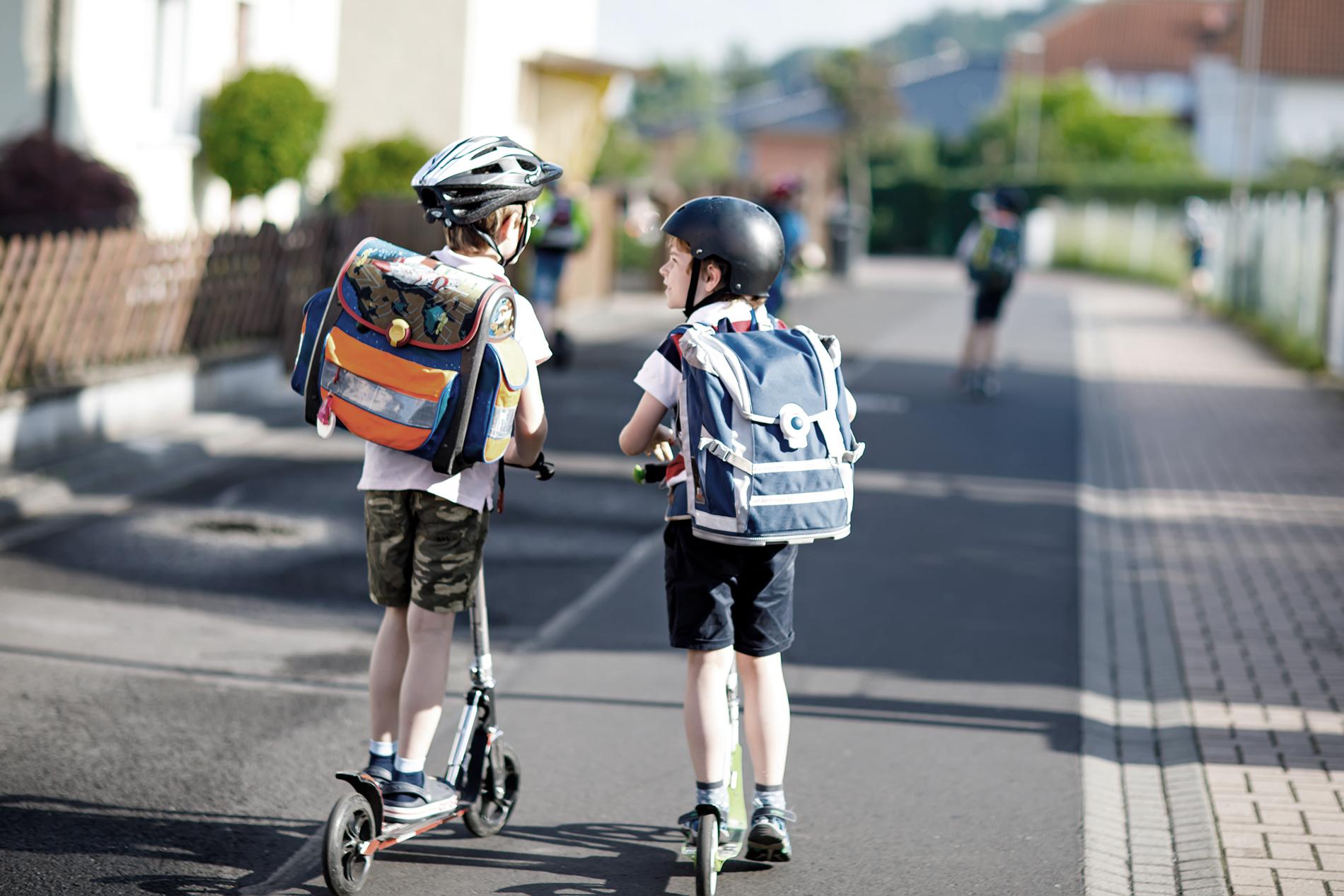The journey to school is an important time for children

Going to school with friends is a precious time that offers numerous opportunities to learn and also unwind, according to children who were asked for their thoughts on this subject.
Parents who do not accompany their children to school sometimes worry what could happen on the way. Children see things very differently: for them, the journey to school is a time of independence and socialisation that contributes to their wellbeing. At least, this is the finding of an interdisciplinary study which has, for once, given them a say on the matter. The findings of this research project, which was conducted with the support of the Swiss National Science Foundation (SNSF), are set out in a recently published international book (*).
“The journey to school isn’t just a straightforward journey from A to B,” explains Zoe Moody, professor at the Valais University of Teacher Education) and researcher at the Centre for Children’s Rights Studies at the University of Geneva. Apart from being an opportunity to exercise outside for those who walk, cycle or scoot to school, it is also a time for children to develop social skills, learn informally and creatively, and interact with their surroundings. “During this time, children may resolve conflicts and share secrets. They establish routines between themselves and challenge each other. They be-come more independent by managing their own routes and schedules, with the only requirement be-ing to arrive on time. Sometimes they even decide to break the rules, by passing through private property or using alternative routes. These experiences teach them to participate fully in society by giving them more independence than they have in a playground, since there is no adult supervising them,” explains Moody.
One of the last areas of freedom
When possible, it can therefore be highly beneficial to give children the opportunity to make this jour-ney by themselves, and even to give them a certain amount of flexibility so they can take their time on the way. “It is undoubtedly one of their last areas of freedom,” Moody emphasises. An area where they are no longer entirely children, but not yet grown up – and vice versa.
Moody also likens the freedom that children have on their journey to school to the time out that adults sometimes take for themselves in a café after work, before returning home. “It’s the concept of the third place, which was coined in 1989 by sociologist Ray Oldenburg,” she explains. A place where you feel at ease, and where you can unwind and have a chat with other people. Bars, libraries, sports centres and parks can also fulfil this function.
Giving children a voice
The study was conducted with 71 children aged between 8 and 12, all of whom make the journey to school without an accompanying adult. These children live in urban, suburban, rural and mountainous areas in the cantons of Graubünden, Ticino and Valais. This enabled the scientists to analyse a varie-ty of settings and therefore different experiences of the school journey.
The study used several participatory methods. First, the scientists held meetings with the school management teams and sent questionnaires to the children’s parents, in order to establish and un-derstand the context of each case. Next, they asked the children to draw their journey to school, be-fore accompanying them while asking questions to understand the experiences they had on the way. Finally, the scientists asked them to classify various images of school journeys, to establish which elements the children associated most with wellbeing.
And that is the unique feature of this study: it gives a voice to the children who make the school jour-ney. “Up to this point, the journey to school was mostly approached from the perspective of adults and studies connected with road safety,” says Moody.
Available to journalists in PDF format from the SNSF:
Funding research in all disciplines
This research work was supported by the SNSF through the project funding scheme. After passing a selection process, researchers can use these grants to carry out projects on self-chosen topics.